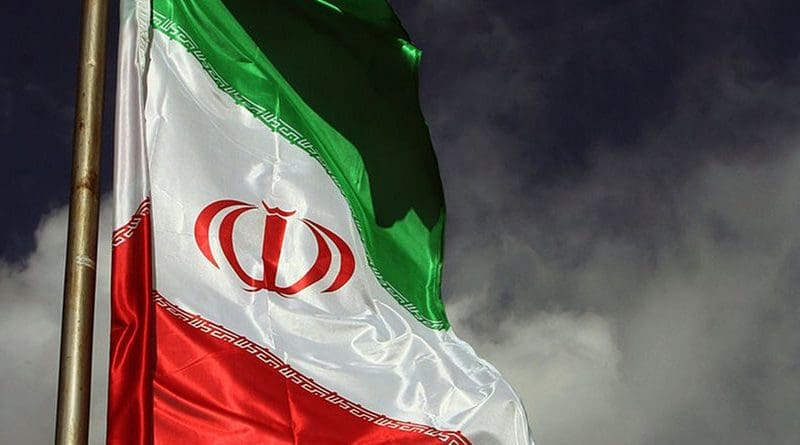The Role That Double Cheque Can Play In Ensuring Iran Abides By The Deal – OpEd
With the outcome of an Iran nuclear deal stalled and awaiting resolution, it is a valuable moment to consider Iran’s behaviour beyond its nuclear program and the underlying financial realities that have made this continued activity possible.
For years, more damaging than its pursuit of nuclear arms, it has been Iran’s support for dangerous and destabilising terror groups and militias in Iraq, Syria, Lebanon, Gaza, and Yemen that has impacted the Middle East. These groups and their handlers in the Islamic Revolutionary Guard Corps (IRGC) have been responsible for the deaths of tens of thousands and the undermining of governments and civil society across the region. At a time when attention is so focused on the prospect of reining in Iranian nuclear aspirations, the means by which Iran has managed to fund its other regional ambitions and evade sanctions must be examined. Crucially, there cannot be a level headed and accurate understanding of the Iranian regime without taking this into account, nor cannot an effective deal be entered into.
Iran’s illicit financing streams have wormed through several countries and provided the regime and its banks with both the means to sustain themselves and with mechanisms to deliver funds to their proxies and allies. Double Cheque, a freely available service established to provide a way for businesses, intelligence agencies, and regulatory bodies to stay abreast of and away from illegal Iranian financial mechanisms has explored these routes in great detail. While the prime focus of Double Cheque has been to prevent organisations from exposing themselves to the risk posed by business activity facilitating terror, the research it has done has also demonstrated the bad faith in which Iran has sat at the negotiating table, all the while continuing to export terror and evade sanctions.
Both a recent WSJ exposé and an independent investigation carried out by Double Cheque have shown how ‘a sophisticated and well-planned mechanism of banking cover networks’ is managed directly by the state, particularly the economics and technology division at the Supreme National Security Council (SNSC), headed by Seyed Mohammad Mir-Mohammadi. This has enabled the annual illicit trade in tens of billions of dollars worth of foreign currency, offering a vital lifeline for the regime’s finances. Double Cheque has further revealed that most of Iran’s commercial banks alongside several Iranian government exporters, particularly the National Oil Company (NIOC) and the Persian Gulf Petrochemicals Company (PGPICC) have utilised this process and that Iran has exploited loopholes in the banking controls of the UAE, China, Turkey, Hong Kong, Singapore, and other countries to facilitate these actions. It is through these mechanisms that ‘Iran has managed to avoid a foreign currency liquidity crisis time after time.’
The impact of this financial evasion is large, directly translating into the budgets of the regime and its subsidiary organisations. The fiscal year for 2022 will see the IRGC budget more than double the previous year’s and come in at 930 trillion rials (US $22 billion) compared to 403 trillion rials in 2021. Michaël Tanchum, a senior associate fellow at the Austrian Institute for European and Security Policy and a non-resident scholar at the Middle East Institute, spoke to DefenseNews about the development, noting that the increased budget would likely contribute to ‘the IRGC aerospace division’s capability to use ballistic missile[s] and next-generation UAVs’. Thus, the money secured by this evasion is directly contributing to regional tensions and strengthening the lethality of Iran in its numerous simmering conflicts. What emerges is a clear picture of the Iranian regime acting in bad faith and using financial loopholes to carry out policies damaging to regional peace and evasive of international oversight and regulation.
Given it has been by these means that Iran has evaded previous international sanctions and agreements, any renegotiated deal that does not provide for oversight of these illicit financial schemes would be built on shaky foundations. It would be akin to making a deal to restrict nuclear enrichment but not provide an inspection mechanism. Only by utilising databases like Double Cheque can the full picture of Iranian state action be understood and the regime held to account in a workable and robust deal. In targeting these networks and working them into a deal, the impact will be two-fold. First, it will send a clear statement to Tehran that its illicit financial behaviour will not be tolerated. Second, it will starve violent groups of the funding by which they terrorize innocent civilians and legitimate governments. Above that, it will ensure that any deal is attuned to the realities on the ground of Iranian financial duplicity that has long been ignored.
Iranian nuclear weapons are a threatening prospect and are at the centre of the deal negotiations. That being said, in the last few years, it has been the destructive power of Iranian money, propping up the regime and funding its proxies, that has damaged the Middle East above all else. The new deal must understand, account for, and seek to restrain this.
*Jacob Keisner, is graduate student at the University of Cambridge pursuing an MPhil in History and a freelance foreign policy analyst focused on the Middle East and North Africa.

